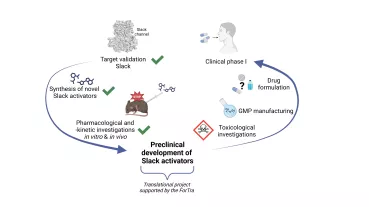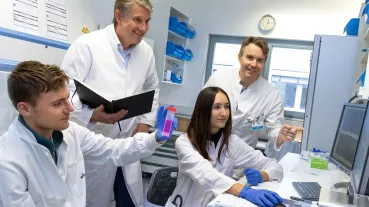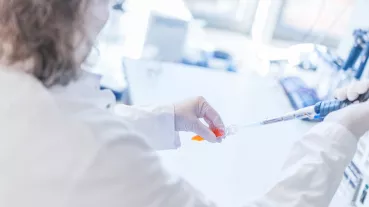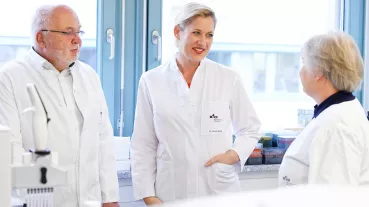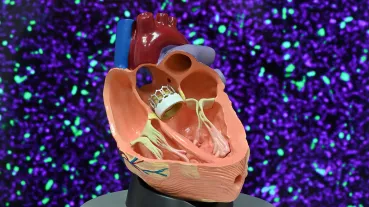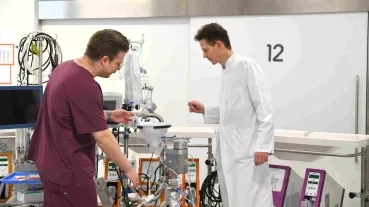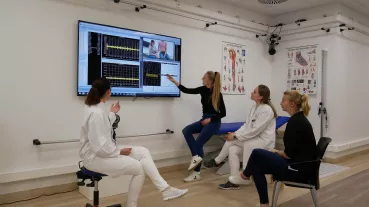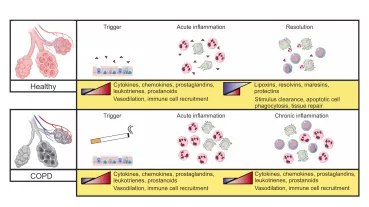Investigation of Calca-encoded peptides to model divergent mechanisms governing bone regeneration
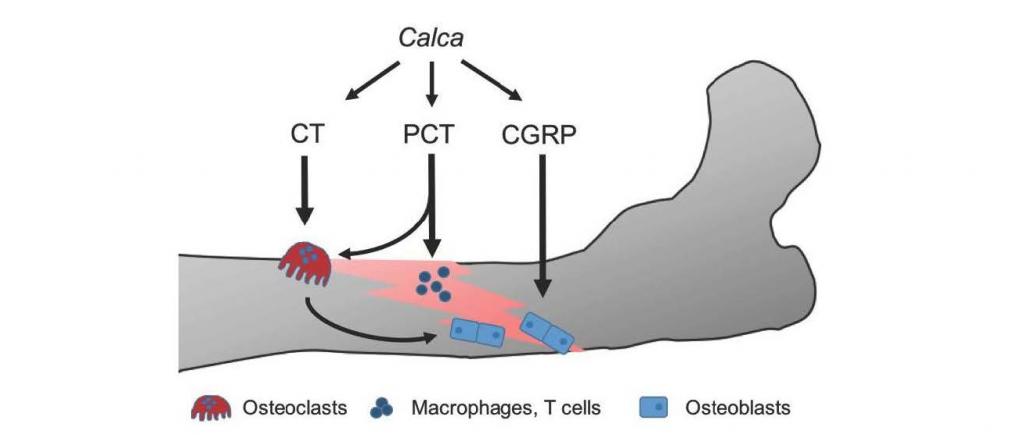
Impaired fracture healing including delayed non-unions still represents an ongoing clinical challenge as it causes prolonged hospitalization, chronic pain and high socioeconomic costs. Patients with severe injuries present with systemically elevated concentrations of Calca-derived peptides including Procalcitonin (PCT), Calcitonin (CT), and Calcitonin Gene-Related Peptide (CGRP). Therefore, the project aims to unravel the roles of these peptides in bone regeneration using in vivo and in vitro approaches.
We hypothesize that each of these peptides exerts a different, yet specific effect on cells required for adequate bone regeneration, including bone-forming osteoblasts, bone-resorbing osteoclasts, and macrophages. Based on the hypothesized actions of Calca-derived peptides, our understanding of the different cellular mechanisms affecting bone regeneration is expected to provide a conceptual advance in the field of trauma surgery from both a clinical and basic science point of view.
Here you can get further information.
